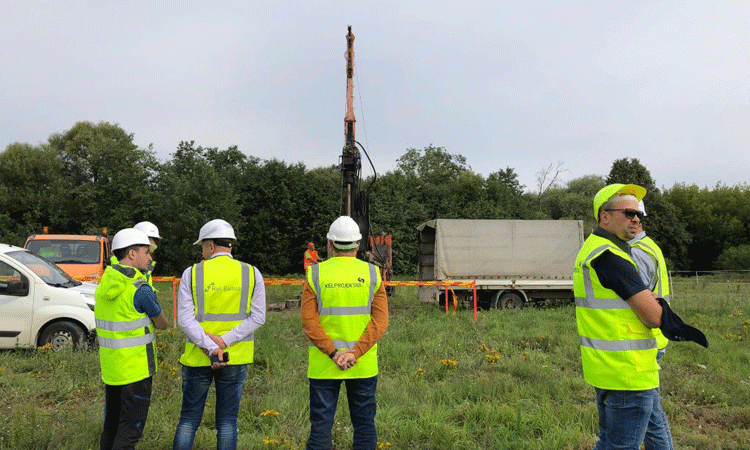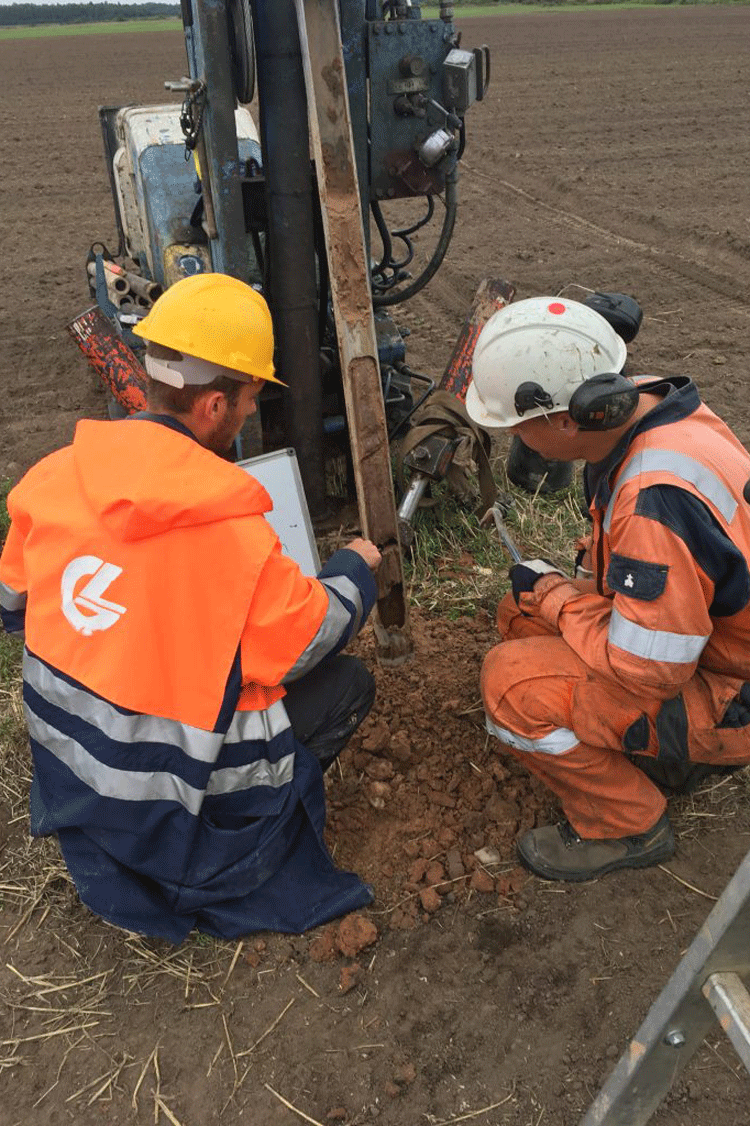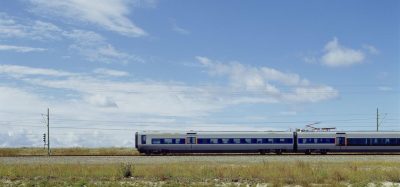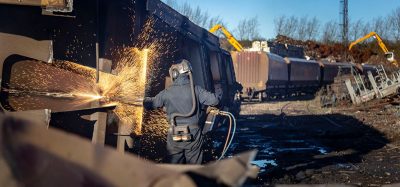Geological surveys are vital because they are supposed to help determine the composition of soil underneath the Rail Baltica construction sites. Soil samples from more than 25 metres underground are sent to the laboratory and examined to determine mechanical properties and geotechnical conditions for each site.
Currently two types of surveys are being conducted in Lithuania – geological probing along the planned main line and more detailed geological surveys required for value engineering. The former entails drilling 10 metres deep boreholes every 100 metres. This will then help make design decisions and prepare for future construction activities. The latter is a more in-depth analysis that will help the designers to determine what sort of foundations will be best suited for future bridges, viaducts and other structures.
The geological surveys in Lithuania for Rail Baltica are almost halfway finished. Currently multiple teams complete up to 15 surveys in one day which amounts to a total of around 1,000 surveys for the main line will be complete by the end of November 2019. Once the investigations are finished in the Švecarija to Šėta section, the works will continue towards the Latvian state border.










